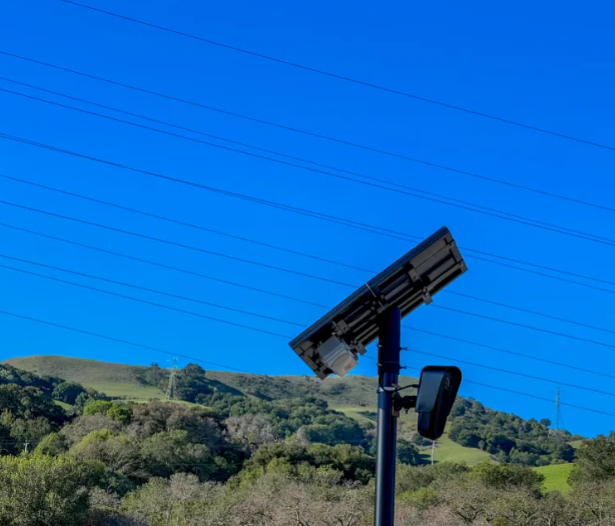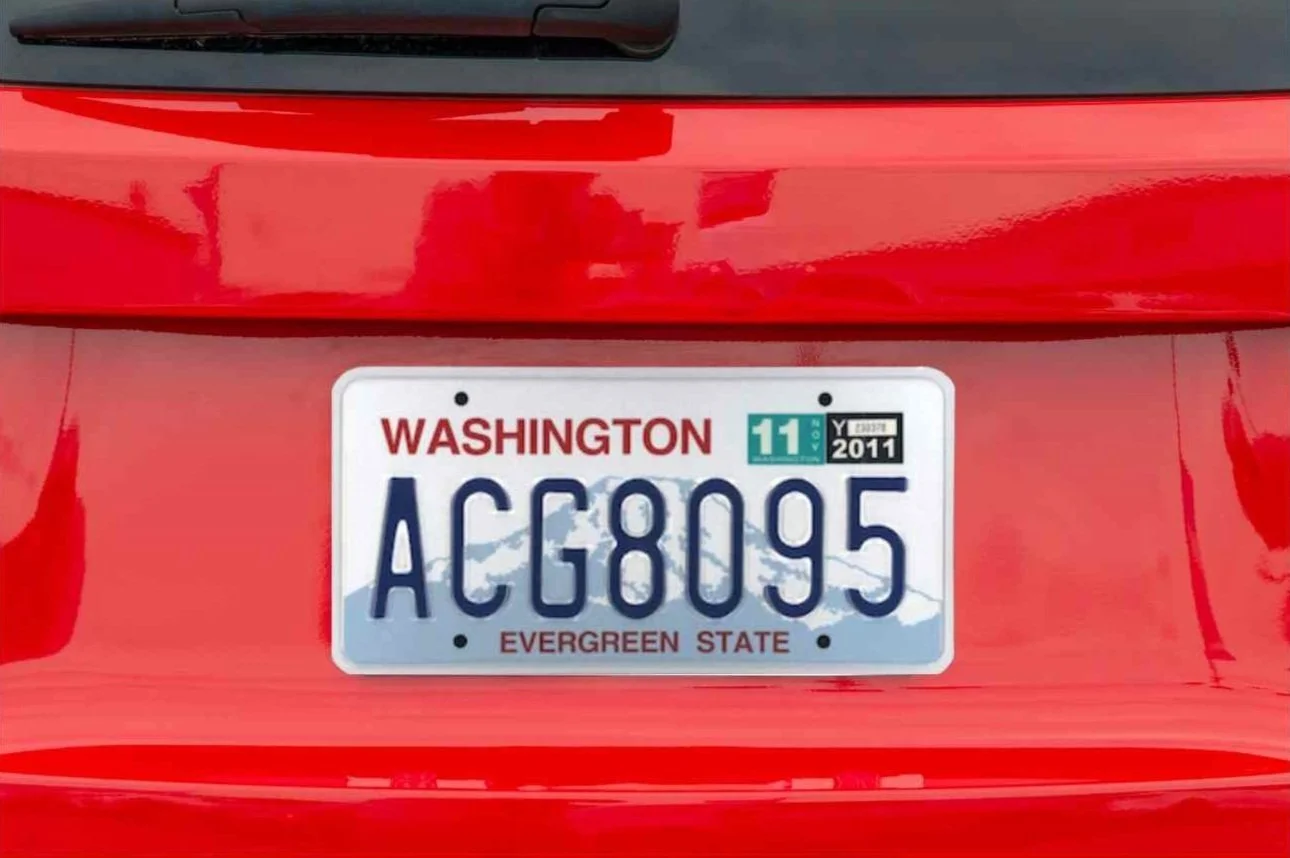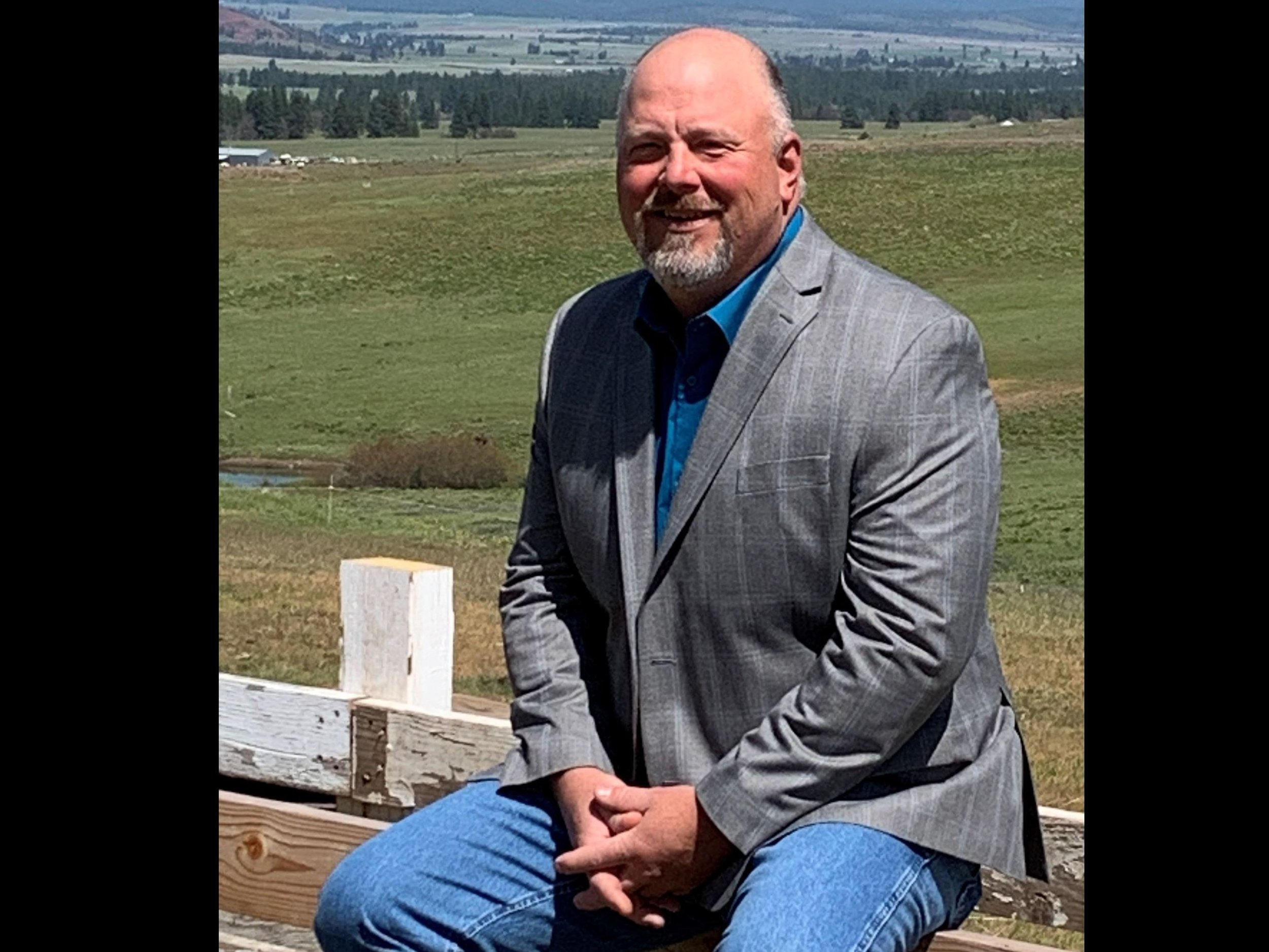Surveillance Camera's bring privacy and money concerns in Klickitat County Communities
“I think it's a great system and useful, but it's not at the top of my list of upgrades for the department right now,” White Salmon Police Chief Mike Hepner said.
By Ken Park
Goldendale, Wash., Oct. 27, 2023 - Klickitat County Undersheriff Carmen Knopes embarked on a tour of the major cities in Klickitat County to promote the use of Flock license plate cameras and has been met with mixed emotions and budgetary concerns about the program.
White Salmon Mayor Marla Keethler
Knopes intended to give a presentation to the City of White Salmon when it meets again in November. However, White Salmon Mayor Marla Keethler said in an email on Oct. 26 that the City of White Salmon will not be participating in the Flock Camera trial at this time.
“The City is not pursuing participation in the Flock license plate camera trial that the Sheriff’s Department is considering, and that is the result of other budget priorities for the coming year as well as a divergence on how we would view the effective implementation of such a program versus what we understand to be the Sheriff’s office intended use,” Keethler said.
Knopes kicked off her county tour at its seat with the City of Goldendale on Oct. 16, where the presentation of the cameras was met with questions about functionality, security, and overall cost of the cameras.
Goldendale Council Member Steven Johnston asked about the cost of the cameras and how they would be paid for.
According to Knopes, the camera's cost is $3,000/year per camera, with Flock doing the installation and maintenance.
Knopes said in an email on Oct. 24 that the Klickitat County Sheriff’s Department (KCSO) is seeking some grant funding for the cameras and will be discussing funding options with the Klickitat County Commissioners about potential forms of funding at the end of a 60-day pilot program, which Knopes anticipates will begin in January.
“If the city (Goldendale) wanted to set up its own cameras, that would be a contract between Flock and the city. If we get cameras in the county, we can give city law enforcement access to our camera system,” Knopes said to the Goldendale council.
Knopes was joined at the meeting by Mike Gibbons and Kristen McLeod, regional representatives for Flock, via Zoom.
Gibbons is a White Salmon resident.
“We would set up Goldendale Police Department, Bingen-White Salmon Police Department, and Klickitat County Sheriffs with essentially a browser-based portal where they can go in and any officers they have chosen or want to be able to access the Flock program can go in and get alerts, do searches; however, that would work,” Gibbons said.
Flock Cameras are solar-powered cameras that capture images of license plates and other vehicle details (make, model, color, stickers, etc.) and alert law enforcement if a vehicle or plate matches the description of a vehicle used in a crime or Amber and Silver alerts.
Klickitat County spans 1900 square miles end to end, with just three deputies per shift crisscrossing the county and only two law enforcement departments serving three of the county's largest cities.
“Flock Cameras offer us (law enforcement) a new tool,” Knopes said.
Knopes proposed that a camera be placed in the City of Goldendale as part of the pilot program, where KCSO is being offered five cameras to be placed in “ high crime” areas around the county.
Goldendale City Council favors this idea, pending input from the county commissioners.
With citizen privacy rights in mind, Goldendale Police Chief Mike Smith asked how the images captured by the Flock Cameras are stored and if the footage would be subject to public disclosure laws.
Kristen McLeod with Flock said that they recommend consulting a city/ county attorney but that, in general, Flock acts as a guardian of the footage until the owner agency pulls the footage from the cloud. The owner agency would be the Sheriff's Department/County or individual City should it pursue a contract with Flock.
The Flock camera program is designed to delete footage after 30 days.
On Oct. 17, Knopes, joined by McLeod (via Zoom), at the Bingen City Council meeting, where the council expressed similar concerns about costs and privacy.
Knopes again assured the council that Flock does not sell the data collected by the cameras to any third parties, such as federal government agencies, or use facial recognition programs.
“They are not facial recognition cameras, they won’t take your picture, they are strictly focused on the vehicle itself,” Knopes said.
The data collected by the cameras is stored in the cloud for 30 days, and the information the department pulls is only when/ if the cameras ping a suspect vehicle.
Bingen Mayor Catherine Kiewit asked if Knopes had met with Bingen-White Salmon Police Chief Mike Hepner to discuss the cameras.
“He is excited about the cameras, but just like everyone else, there are budget issues,” Knopes said.
Hepner said in a phone call on Oct. 24 that while the Flock Cameras would be a great tool to have, he would not pursue purchasing them at this time.
“I think it's a great system and useful, but it's not at the top of my list of upgrades for the department right now,” Hepner said.
On Oct. 24, Knopes was again joined by Gibbons and McLeod ( this time in person) for a presentation at the Klickitat County Commissioners meeting.
Klickitat County Sheriff Bob Songer
Sheriff Bob Songer, who initially proposed the Flock Camera program at a Lyle community meeting in September, was also present.
Before the presentation, citizens and the commissioners expressed their thoughts on the Flock program, noting that they would like to learn more before making any decision.
White Salmon resident Gabrielle Gilbert identified points of concern for her regarding the program.
“What are the unintended consequences and constitutional guarantees? How do you safeguard vulnerable populations due to conscious and unconscious bias? How will you ensure these populations are protected?” Gilbert said.
Commissioner Dan Christopher noted that he has similar concerns about citizens' rights to privacy but said no decision on the Flock cameras would be made.
Knopes opened the presentation to the county commissioners, highlighting again the rising crime rates and lack of manpower in the department.
“We all know that we have criminal activity on both ends of the county and parts in between, and we have a limited amount of deputies. So using technology to assist in any kind of criminal cases will be beneficial and far more economical than trying to hire additional deputies that we know we can’t get right now with our current budget,” Knopes said.
According to Knopes, Klickitat County has seen significant increases in crime, noting that there have been at least two reported kidnappings in the last month and a significant increase in burglaries and drug trafficking.
Knopes suggested that at least one camera will be in the area of Lyle, where, over the last six months, the department has received over 400 calls related to criminal activity.
Another potential location is on the county road near Columbia High School in White Salmon.
“Columbia High School falls on a county road, which might be an ideal location for use during the pilot program to see what kind of traffic we have going by the school zones,” Knopes said.
Commissioner Jake Anderson also asked about camera placement during the trial run, wondering if there was a way to have the cameras on or near state highways.
Flock representative Mike Gibbons said the cameras could only go in county right-of-way areas near the aforementioned “high crime” areas, primarily due to ongoing negotiations with the Washington Department of Transportation regarding cameras on state highways.
“We are pretty fortunate that Mike and his team have developed a strategic mapping of where cameras would be useful in Klickitat County,” Knopes said.
Dan Christopher
Commissioner Dan Christopher made note of the data he would like to see from the trial period, which would determine if the Flock program is worth it for the County in terms of cost.
“I am a numbers guy. I don’t like to make decisions until I have all the evidence in front of me and I can crunch numbers and see a bang for a buck,” Christopher said. “ I look forward to seeing the number of hits the Flock system gets that end up getting cited or arrested by law enforcement. If we get 300 hits but don’t get them (criminals), there’s no bang for the buck. I want to see them in the Klickitat County Jail.”





